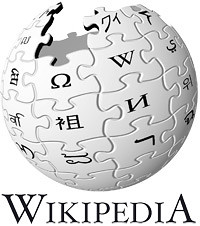Nick Ford added the comment "For me a locked down/user pays manifestation of the Internet rather than the Internet the world is currently blessed with is something to be vigilant against. For more information visit Stanford Centre for Internet and Society (CiS) and read 'STOP SOPA'. Lawrence Lessig is the founder of CiS and Creative Commons".
 Image via CrunchBase
Image via CrunchBaseI wholeheartedly agree that the Internet needs to remain as open and accessible, and that the whole notion of copyright is an outmoded, artificial construct that has been placed on creativity and innovation by folk who see a direct cause and effect between the creation of something, and making a buck. The reason I feel it's artificial is that invention and art (to name but two) have always been a constant collaborative effort, where one thing builds on another - often extending it. The lightbulb could not, for example, have been invented if a whole heap of work had not been done around electricity, resistance, and the materials required to make the physical object. How can you copyright / patent that?
 Image by Octavio Rojas via Flickr
Image by Octavio Rojas via FlickrThe whole notion also raises interesting wider questions around what we believe to be freedom of expression, and where, if anywhere, the line has to be drawn. There is some content that pretty much unanimously human being are likely to agree has no place in society in general, and on the Internet in particular, and some forms of predatory behaviour that are also not acceptable. However, where subjects of morality, bias, and belief are
expressed, what do we feel is 'acceptable' and why? When I find something objectionable should that mean it is removed? If the Internet is there for anyone to share their own world view, what if it seen as inciting violence by some, but as a way of promoting peace by another? And who makes the final decision? Would be great to hear what you think







No comments:
Post a Comment